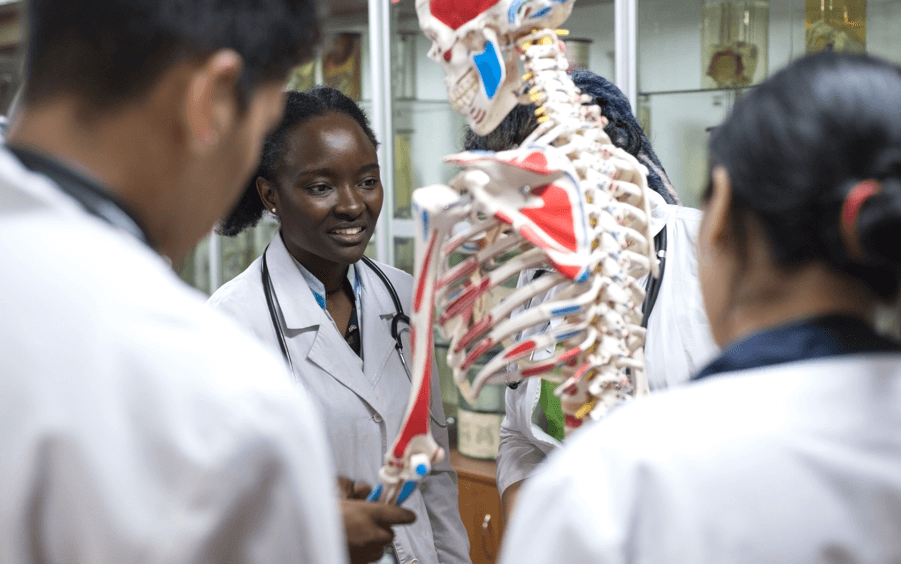Table of Contents
GUIDE TO CHOOSING YOUR MEDICAL SCHOOL FOR COLLEGE | As a prospective medical student, you need to be keen about choosing the medical schools you’re going to apply to. The right one becomes your partner in fulfilling your dreams of becoming a doctor and strengthening your skills and credentials.
This process, however, can often be easier said than done. Even in your local area, there could be quite a number of medical schools you can choose from. This would only make your selection process even a lot more complicated.
To ease that process out, below is an ultimate guide to choosing a medical school.
Compare The Entry Requirements
One of the first starting points when choosing a medical school is to compare the entry requirements. This begins with your pre-med choice like nursing, biology, medical technology, and other degrees. Some schools will have more stringent entry requirements than others, hence researching for a college is always a daunting task.
But a long list of requirements doesn’t necessarily equate to a better academic standard. Especially if you’re keen on applying to a medical school overseas, you have to understand that the entry requirements may be greater than those asked from local applicants.
Academic requirements typically make it high across the board. But other important points you also have to remember include:
- Some med schools specify the needed pre-requisite subjects while others don’t;
- Some med schools won’t consider your grades for general subjects that don’t matter to your future career as a doctor;
- Some med schools have a higher grade and entrance requirements while others don’t;
- Some med schools will also have the availability of school admission consulting while others won’t.
Speak To Those Who Are In The Know
Speaking to those in the know is another helpful step you can use to your advantage when choosing a medical school. This refers to those within your network who are doctors themselves or who are completing their medical degrees.
By speaking to those individuals, you get first-hand and honest information about the reputation of certain medical schools. Perhaps you’ve desired medical schools on your list and you just need to verify whether those are good ones.
For many would-be medical students, this is also one of the best ways for you to extract honest and bias-free information about medical schools.
Don’t Forget The Location
The location of the medical school is just as important as the school’s reputation itself. The reason behind this is the location can make or break your overall happiness and comfort level while you’re in medical school.
For instance, is the medical school located in a safe environment? Or is the crime rate high? Note that students are very susceptible to crimes. And when you’re in medical school, you’re going to have a lot of long nights in your school.
Surely, you wouldn’t want to be worried about your safety when you could have made the better choice of a school in a more student-friendly location.
There are a lot of other personal factors that come into play regarding location. For instance:
- How far are you willing to be away from your family? Do you want to study in a medical school that’s within the same state or are you up for the challenge and adventure of traveling abroad?
- What’s the weather like where the medical school is located? Asian students who are used to the warm weather may find it challenging to adjust to a place where the cold season is longer than the warm, and the winter months can be unforgiving.
These may seem like minute details, but they matter a lot once you start medical school. It’s a stressful and highly demanding environment already on its own. The last thing you want is to experience the added stress of factors brought about by your chosen school’s location.
Availability Of Research Opportunities
Some schools have more availability for research opportunities than others do. This depends on the medical school’s focus and location. The deciding factor is on you as to whether research opportunities matter to you.

Some students don’t see this as a deciding factor while other medical students may weigh this with utmost importance as they like to venture into the world of clinical medical research once they’re a doctor.
For instance, research opportunities on stem cell treatments and other related matters may be greater in Germany and Israel where those alternative treatments are highly available. The choice here also depends on the field of specialization you intend on doing as a medical student and future physician.
Ask About The Fees
Of course, another deal-breaker when choosing your medical school for college is the fees. You have to be able to afford the medical school you’re going to. Even if you’ll be taking out a student loan for your tuition, be realistic about the amount you can afford to borrow.
The last thing you want is to be financially drained during your first few years as a doctor because you’re still catching up on your loan payments.
While highly-reputable schools often come with exorbitant tuition fees, note that quality isn’t always determined by the tuition fee. There are also expensive medical schools that aren’t as good as some that may be charging less.
So, rather than focus too much on the tuition fee amount, take the program of each medical school in its entirety. Make your comparison between two to three medical schools. By doing so, you can assess whether the school’s fee is worth it.
Observe The Student Life
If you have the opportunity to walk around the campus and observe the student life, do so. This should be another important factor during your selection process. You’ll be spending at least four years of your life in that medical school, so you should be happy where you are.
Like the location, the student life can shape your overall quality of life as a medical student. It means you have an opportunity to balance out fun with the inherent stressful environment brought about by medical school.
Conclusion
At this early stage of your potential medical career, one of the most important and biggest decisions you’ll have to make relates to which medical school you’re going to apply for. Don’t rush this process. As you may have gleaned from the guide above, there are a lot of things to consider when narrowing down your list of options.
Most importantly, while choosing your medical school for college don’t forget that every medical school has its respective pros and cons. It’s up to you to weigh those according to your personal preference and other factors.















